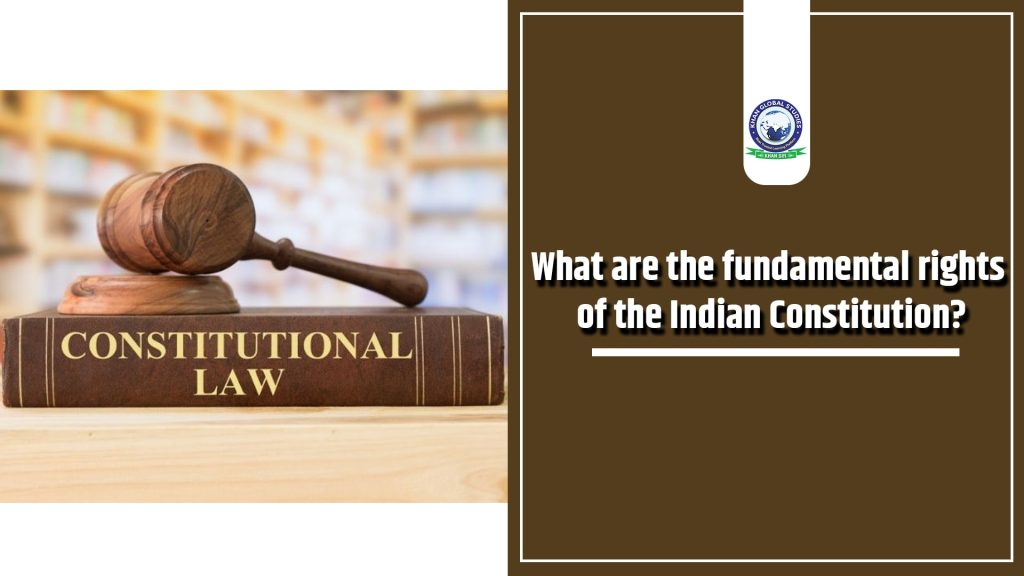
The Fundamental Rights are the basic human rights enshrined in the Constitution of India that are guaranteed to all citizens. These are implemented without discrimination based on caste, religion, gender etc. It is noteworthy that fundamental rights can be enforced by the courts subject to certain conditions.
As per the Indian constitution, we have 6 fundamental rights. These are:
- Right to Equality,
- Right to Liberty,
- Right Against Exploitation,
- Right to Religious Freedom,
- Cultural and Educational Rights and
- Right to Constitutional Remedies.
Fundamental Rights Explained
1. Right to Equality (समानता का अधिकार) (Articles 14 to 18)
The right to equality ensures equal rights for all citizens. The right to equality prevents inequality based on caste, religion, place of birth, race or sex. It also ensures equality of opportunity in matters of public employment and prohibits the State from discriminating against anyone in matters of employment on grounds only of religion, race, caste, sex, descent, place of birth, residence or any of them.
2. Right to Freedom (स्वतंत्रता का अधिकार) (Articles 19 to 22)
The right to freedom provides us with various rights. These rights are freedom of speech, freedom of expression, freedom of assembly without weapons, freedom of movement throughout the territory of our country, freedom of association, freedom to practice any profession, and freedom of residence in any part of the country. However, these rights have their limits.
3. Right Against Exploitation (शोषण के विरुद्ध अधिकार) (Articles 23 to 24)
The Right Against Exploitation condemns human trafficking, child labour, forced labour and makes it a crime punishable by law, and prohibits any act of forcing a person to work without wages, where it is legally prohibited. Is physically unable to do so, is not entitled to work or receives remuneration for it. Unless it is for a public purpose, such as community services or NGO work.
4. Right to Religious Freedom (धार्मिक स्वतंत्रता का अधिकार) (Articles 25 to 28)
The right to religious freedom guarantees religious freedom and ensures secular states in India. The Constitution says that states must treat all religions equally and fairly and that no state has any official religion. It also guarantees all people freedom of conscience and the right to profess, practice and propagate any religion of their choice.
5. Cultural and Educational Rights (सांस्कृतिक एवं शैक्षणिक अधिकार) (Articles 29 & 30)
Cultural and educational rights protect the rights of cultural, religious and linguistic minorities by enabling them to preserve their heritage and protect them from discrimination. Educational rights ensure education for all regardless of caste, gender, religion etc.
6. Right to Constitutional Remedies (संवैधानिक उपचारों का अधिकार) (Articles 32 to 35)
The right to constitutional remedies ensures the right of citizens to approach the Supreme Court of India for enforcement or protection against violation of their fundamental rights. The Supreme Court has the jurisdiction to enforce fundamental rights even against private bodies and award compensation to the affected person in case of any violation.
Features of Fundamental Rights
- Fundamental rights differ from common law rights in the way they apply. If any legal right is violated then the victim cannot leave the lower courts and go directly to the Supreme Court. They should first approach the lower courts.
- Fundamental rights are not absolute rights. They are subject to appropriate restrictions, which means they are subject to the conditions of state security, public morality and decency, and friendly relations with foreign countries.
- They are equitable, meaning they are enforceable by the courts. In case of violation of fundamental rights, people can directly go to the Supreme Court.
- Fundamental rights can be amended by Parliament by constitutional amendment, but only if the amendment does not change the basic structure of the Constitution.
- The fundamental rights of the Indian Constitution can be suspended during a national emergency. However, the rights guaranteed under Articles 20 and 21 cannot be suspended.
- The exercise of fundamental rights may be restricted in an area that has been placed under martial law or military rule.




